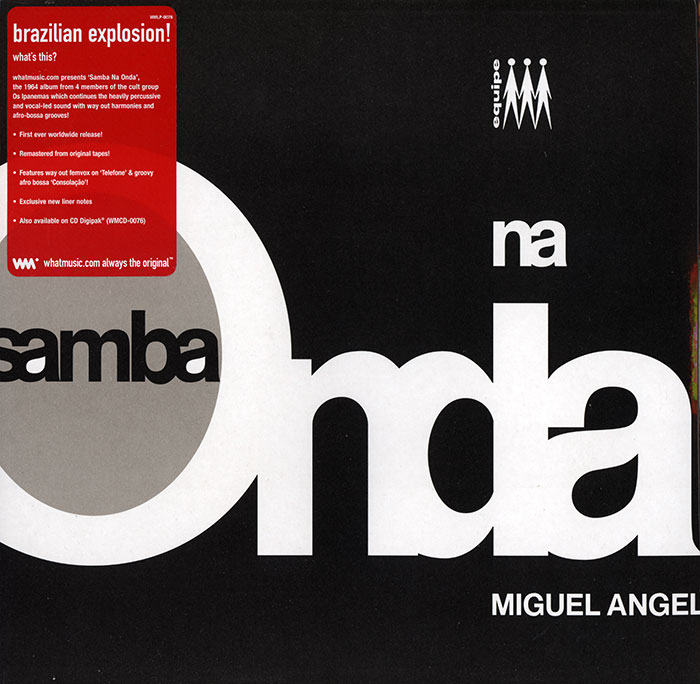Logowanie
Dlaczego wszystkjie inne nie brzmią tak jak te?
Chai Lang, Fan Tao, Broadcasting Chinese Orchestra
Illusive Butterfly
Butterly - motyl - to sekret i tajemnica muzyki chińskiej.
SpeakersCorner - OSTATNIE!!!!
RAVEL, DEBUSSY, Paul Paray, Detroit Symphony Orchestra
Prelude a l'Apres-midi d'un faune / Petite Suite / Valses nobles et sentimentales / Le Tombeau de Couperin
Samozapłon gwarantowany - Himalaje sztuki audiofilskiej
PROKOFIEV, Stanislaw Skrowaczewski, Minneapolis Symphony Orchestra
Romeo and Juliet
Stanisław Skrowaczewski,
✟ 22-02-2017
BARTOK, Antal Dorati, Philharmonia Hungarica
Dance Suite / Two Portraits / Two Excerpts From 'Mikrokosmos'
Samozapłon gwarantowany - Himalaje sztuki audiofilskiej
ENESCU, LISZT, Antal Dorati, The London Symphony Orchestra
Two Roumanian Rhapsodies / Hungarian Rhapsody Nos. 2 & 3
Samozapłon gwarantowany - Himalaje sztuki audiofilskiej
Winylowy niezbędnik
ClearAudio
Cartridge Alignment Gauge - uniwersalny przyrząd do ustawiania geometrii wkładki i ramienia
Jedyny na rynku, tak wszechstronny i właściwy do każdego typu gramofonu!
ClearAudio
Harmo-nicer - nie tylko mata gramofonowa
Najlepsze rozwiązania leżą tuż obok
IDEALNA MATA ANTYPOŚLIZGOWA I ANTYWIBRACYJNA.
Wzorcowe
Carmen Gomes
Celebrating the art and spirit of music - vol. 5 - Reference Songs
- CHCECIE TO WIERZCIE, CHCECIE - NIE WIERZCIE, ALE TO NIE JEST ZŁUDZENIE!!!
Petra Rosa, Eddie C.
Celebrating the art and spirit of music - vol. 3 - Pure
warm sophisticated voice...
SAMPLER - STS DIGITAL, Gregor Hamilton
Celebrating the art and spirit of music - vol. 2 - Love songs from Gregor Hamilton
...jak opanować serca bicie?...
SAMPLER - STS DIGITAL
Celebrating the art and spirit of music - vol. 1 - Leonardo Amuedo
Największy romans sopranu z głębokim basem... wiosennym
Lils Mackintosh
Celebrating the art and spirit of music - vol. 4 - A Tribute to Billie Holiday
Uczennica godna swej Mistrzyni
Miguel Angel
Samba Na Onda
"Samba Na Onda", the 1964 album from 4 members of the cult group Os Ipanemas which continues the heavily percussive and vocal-led sound with way out harmonies and afro-bossa grooves! --------------------- new wave samba! One of the most obscure of the 60s bossa-inspired groups was Os Ipanemas. The group recorded their one and only album on the CBS label, which in early 60s Brazil, as in the USA, was a label almost entirely dedicated to easy listening of the Ray Conniff variety. As a result, the few hip albums that were released on CBS Brasil during the 60s were poorly distributed, sold very little, and are consequently very expensive cult items today. In the early-to-mid 90s Os Ipanemas generated a big worldwide following as their album was rediscovered and reissued and one of the main reasons for this was their unique sound. Despite their name, the Ipanemas were not at all related to ‘easy’ bossa nova, and their main exponents all had a healthy interest in afro-cuban sounds and forms. So much so, in fact, that some of the tracks on ‘Os Ipanemas’ are like brazilian equivalents to authentic cuban rumba. Of the group members, Rubens Bassini had already released his own LPs in the early 60s (‘Ritmo Fantastico’ is also available on whatmusic.com) which were heavily afro-cuban inspired, and drummer extraordinaire Wilson das Neves had also brought a heavy sound to the recordings he played on. Percussionists Jorge Arena (later part of Elis Regina’s touring band) and Humberto Garin (Ed Lincoln’s percussionist along with Orlann Divo) were also involved in the more afro-cuban jazz inspired recordings of the day, as was Ipanemas guitarist Neco – much in demand for his insistent acoustic guitar groove (again far removed from the laid-back bossa style). So it made sense that uruguayan-born Miguel Angel (aka Miguel Cidrás) should hire these heavy musicians for this rare Equipe album. Added to the Ipanemas rhythm section (the ‘kitchen’) are bassist Cacho and singer Joab, augmented by a mixed vocal chorus. Replacing the trombone of Astor Silva is Miguel Angel Cidrás’ own percussive piano to create a sound that’s almost a 60s penthouse version of the Ipanemas afro-brazilian sound. Cidrás (who once advised a young artist wanting to know how to get a record deal that ‘if you’re a guy you need a lot of dough and if you’re a girl – be prepared to put out’) later became an important arranger at the International Song Festivals in the late 60s/early 70s as well as working with many different artists such as Leno & Lilian, Ney Matogrosso, Kleiton & Kleidir and Alceu Valença amongst others. His most important contributions outside of this LP, however, were his highly imaginative arrangements for Brazil’s great 70s rock hero, Raul Seixas. The tracks on this album are mostly groovy, afro-bossa based with occasional way-out vocals. The Menescal/Boscoli song ‘Telefone’ (previously recorded ‘straight’ by Astrud Gilberto and Stan Getz on ‘Getz Au Go Go’) here receives amazing dissonant vocals which takes it to another plane. Groovers like ‘Bate A Palma’ and ‘Vou Andar Por Aí’ go a long way towards creating the party atmosphere and the fantastic take on Baden Powell’s ‘Consolaçăo’ is true Os Ipanemas territory. All in all ‘Samba Na Onda’ is an album that deserves to be rediscovered as part of the legacy of the Ipanemas sound.
























